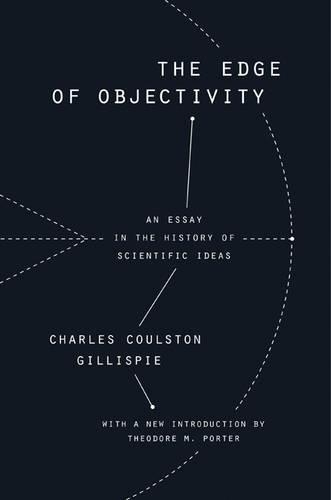
The Edge of Objectivity: An Essay in the History of Scientific Ideas
(Paperback)
Publishing Details
The Edge of Objectivity: An Essay in the History of Scientific Ideas
By (Author) Charles Coulston Gillispie
Introduction by Theodore M. Porter
Princeton University Press
Princeton University Press
14th November 2016
United States
Classifications
Tertiary Education
Non Fiction
Philosophy of science
509
Physical Properties
Paperback
600
Width 152mm, Height 235mm
851g
Description
Originally published in 1960, The Edge of Objectivity helped to establish the history of science as a full-fledged academic discipline. In the mid-1950s, a young professor at Princeton named Charles Gillispie began teaching Humanities 304, one of the first undergraduate courses offered anywhere in the world on the history of science. From Galileo's
Reviews
"Gillispie has written a bold, penetrating, and very personal book... Deft evocation of personality, bright flashes of biographical detail, and enough connected narrative to show the direction and complexity of scientific advance, are all subordinated to the task of examining the crucial attitudes and ideas, the signal commitments of thought, which have shaped modern science and troubled the mind of modern man... All told, this is an exciting book, based on wide and often deep scholarship, a pleasure to read and to meditate upon. It is sure to be widely read, often quoted, and interminably discussed."--Henry Guerlac, The New York Times "A provocative and readable interpretation of major advances in certain departments of scientific thought from Galileo to James Clerk Maxwell... [S]harp, enlightening and entertaining."--Scientific American "This is a wonderful book... Not attempting a survey, [Gillispie chooses] certain aspects to write about with originality and depth [and provides] a light of understanding which diffuses over a whole epoch... We have thus a set of panels starting with Galileo, Kepler, and seventeenth-century cosmology, the eighteenth-century Enlightenment culminating in Lavoisier, the life sciences leading up to Lamarck and Darwin, and nineteenth-century energetics and field physics."--Giorgio de Santillana, American Scientist "An excellent book, stimulating for someone just beginning to take an interest in the history of scientific thought, and sufficiently scholarly in its material and conclusions to be worth reading by the specialist, too."--R. Harr, Journal of the Royal Institute of Chemistry "A superbly interesting work, well written, informative and well produced."--Nation "By far the best account of the movement of scientific ideas in Galileo, Newton, Lavoisier, Darwin, Maxwell, Einstein and other scientists who have sharpened the cutting edge of scientific probing."--Journal of the History of Ideas "Admirably clear and elegant... [A]n excellent book."--Journal of the Royal Institute of Chemistry
Author Bio
Charles Coulston Gillispie (1918-2015) was Dayton-Stockton Professor Emeritus of History of Science at Princeton University. Theodore M. Porter is Distinguished Professor of History and the Peter Reill Chair in European History at the University of California, Los Angeles.
